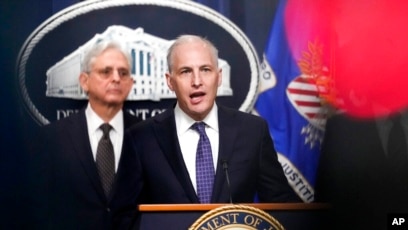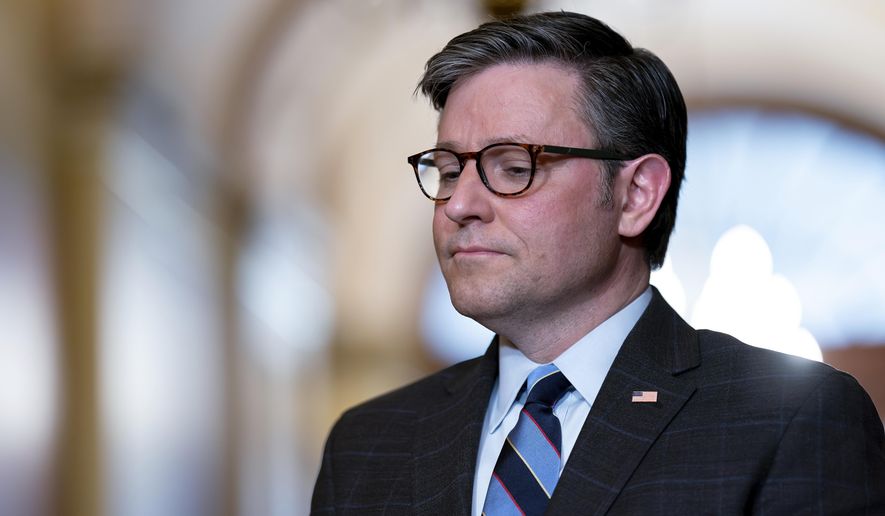US officials make case for renewing FISA surveillance powers

Biden administration officials asked Congress Tuesday to renew the surveillance program that they have long considered vital in protecting national security. However, its future is uncertain due to scrutiny by some Republicans and civil liberties advocates.
Under the Foreign Intelligence Surveillance Act (FISA), the program gives American spy agencies broad powers to examine and monitor communications from foreigners residing outside the United States. It will expire in year unless Congress renews it.
The Democratic administration was preparing for a heated debate on Capitol Hill over reauthorizing this program. On Tuesday, they made a public case about how the value of the statutory authority that is at risk of expiring. They claimed that the program has provided valuable insights into ransomware attacks against critical infrastructure, prevented terrorist acts and attempted recruitment of spies and was responsible for the death of al-Qaida leader Ayman alZawahri last August in a drone strike.
Section 702, a FISA provision that allows spy agencies to gather large amounts of foreign communications without warrants, is at issue. Civil liberties advocates have criticized this tool for allowing Americans to collect incidental information from foreign surveillance targets.
|
“As of today I don’t believe the claim that Americans privacy is adequately protected by the current 702 program,” stated Sen. Ron Wyden (D-Ore.), a longtime member of the Senate Intelligence Committee who has long been pressing the U.S. spy agencies to comply with civil liberties.
Wyden stated that he had spoken with administration officials about disclosing the frequency of officials searching “incidental collection”, for information about Americans. Although the intelligence agencies publish an annual “transparency Report”, they have not released a specific number of U.S. searches.
Wyden stated in an interview that “this is representative of one the most important challenges our time, especially for policymakers, and that is to show security and liberty can not be mutually exclusive.”
Section 702 was added to FISA for the first time in 2008. It was renewed for six more years in 2018. In 2018, then-President Donald Trump tweeted opposition to the program, but he later reversed his position.
The fight for renewal this year is taking place in a highly polarized political environment. Republicans are still upset over FBI mistakes in the investigation into Russia’s links to Trump’s 2016 presidential campaign. They remain skeptical about the government’s need of broad spy powers, and believe the authorities are open to abuse and overreach.
The Russia probe’s flaws, which required warrants to a secretive court to monitor communications of a former Trump campaign adviser, were different to the Section 702 authorities which allow communications to be collected with or without a warrant.
However, the U.S. House’s new Republican majority has formed a panel to examine the “weaponization of the federal government”, aligning itself with progressive Democrats, who have advocated for greater restrictions on warrantless surveillance.
Rep. Chris Stewart (Republican from Utah) stated that he believes Congress will ultimately authorize the program, but that it would be difficult to get Republican support.
Stewart, a member of the House Intelligence Committee, stated that “the importance of it is such a that we can’t afford to fail.” It’s going to prove very difficult.
Biden administration officials conducted a background briefing to reporters in an effort to convince Congress to renew the program and to address privacy concerns. They released a statement by Jake Sullivan, national security advisor, and a letter addressed to lawmakers from Avril Haines, national intelligence director, and Attorney General Merrick Garland.
Separately, Matthew Olsen (Assistant Attorney General), the Justice Department’s top official in national security, gave the same message at the Brookings Institution think-tank.
Olsen stated, “The bottom line here is that Section 702 provides us with the intelligence we need to keep one step ahead of our adversaries. We cannot afford to let this pass.” It is time to raise the alarm. It is urgent that we act, and this is why I’m here today.”
According to national security officials, Section 702 allows them to do their most important work. This includes collecting intelligence about China and stopping ransomware attacks. They declined to reveal the specifics of their surveillance programs because they are classified.
The program has been given a deeper look by the courts and legislators, but this was done in private. Already, intelligence leaders have been talking to lawmakers about Section 702 and will present briefings to Congress in both classified and unclassified form later this year.
Garland and Haines write to Congress to note that every court that has considered Section 702’s bulk-data program “has found” it constitutional.
The intelligence community has not released any figures on the number of searches it makes on bulk data to find information about Americans. According to the Office of the Director of National Intelligence, the FBI conducted “less than 3394,053” searches in 2021 according to its most recent transparency report.
There are questions, aside from civil liberties, about whether the power granted to U.S intelligence following the Sept. 11th 2001 terror attacks should be extended. As intelligence agencies refocus from counterterrorism, to what is often called “great force competition”, Washington’s rivalries against Beijing and Moscow, and other threats, it’s important to consider whether this power should be extended.









No Comments